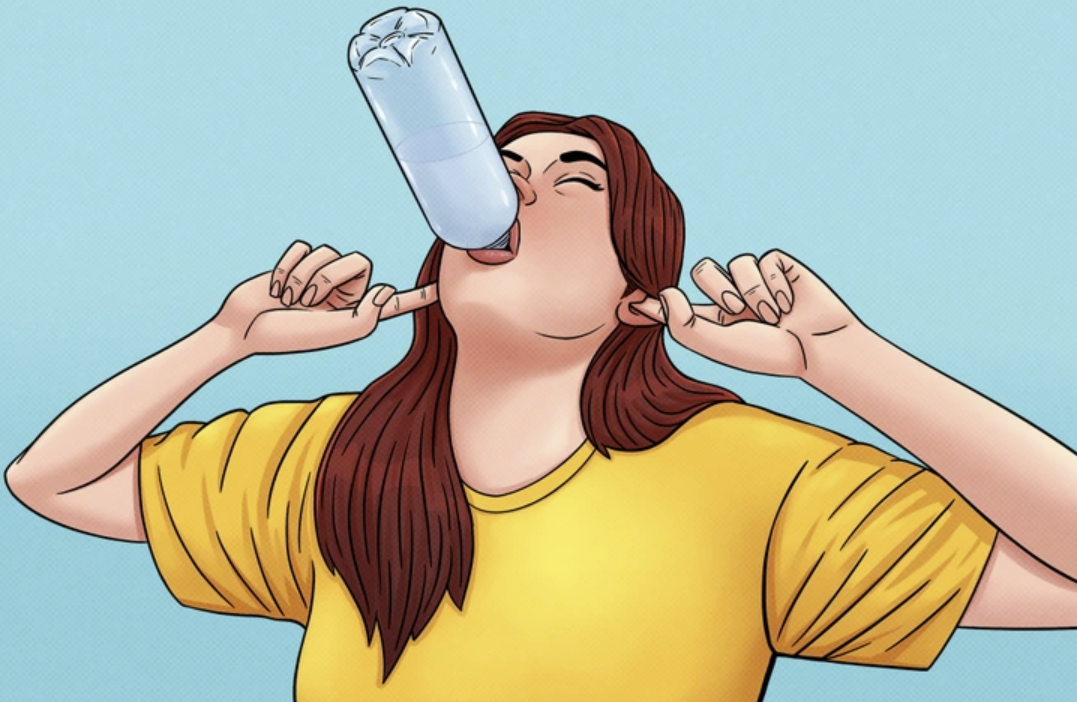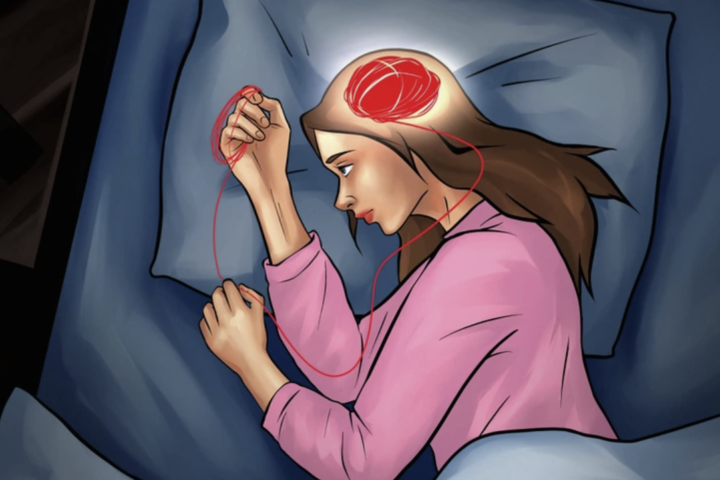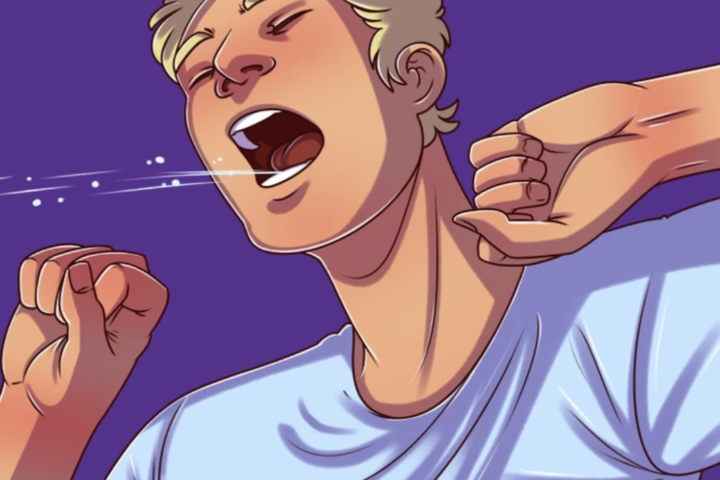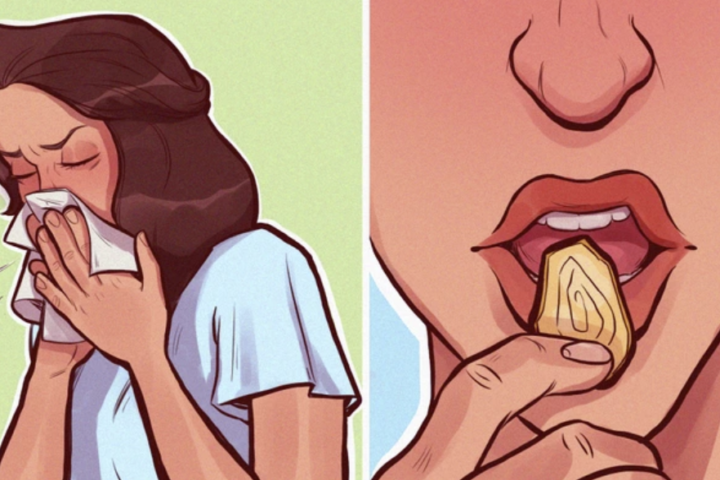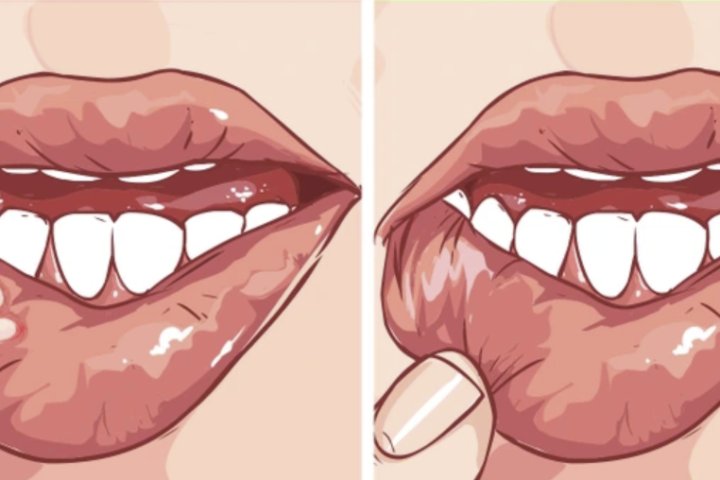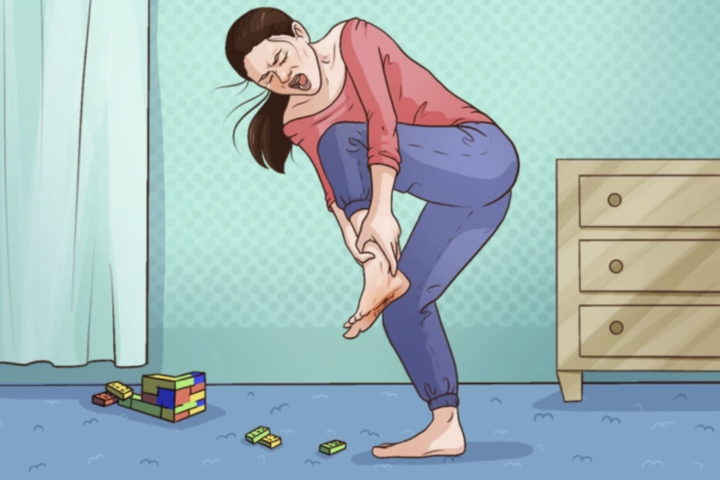If you’re tired of enduring those pesky hiccups and want to find immediate relief to stop them, you’ve come to the right place. In this comprehensive guide, we will explore some effective techniques that can help you put an end to hiccups right away.
Hiccups are sudden, involuntary contractions of the diaphragm muscle that can disrupt our daily lives. While they are typically harmless and temporary, they can be bothersome and even embarrassing in certain situations.
From traditional home remedies to innovative approaches, these methods have been proven to alleviate hiccups for many individuals. So, let’s dive in and discover how to bid farewell to hiccups swiftly and regain control of our bodies.
1. Breath into a Paper Bag!
Breathing into a paper bag is a technique often used to regulate breathing, but it can also help stop hiccups. The bag traps some of the exhaled carbon dioxide, allowing you to inhale slightly higher levels of carbon dioxide. This process can help relax the diaphragm muscle and disrupt the hiccup cycle.
2. Hold Your Breath
No paper bag around? No worries! Begin by taking a slow, deep breath and then hold it for as long as you comfortably can.
Similar to the paper bag breathing, this action increases the amount of carbon dioxide in your bloodstream, which can help relax the diaphragm muscle and interrupt the hiccup cycle. While holding your breath, you may also try swallowing or gently massaging your throat to enhance the effectiveness of the technique.
3. Humming
Humming can provide a temporary disruption to the hiccup reflex. By doing this, you are redirecting the focus to the muscles and nerves involved in producing sound or maintaining breath control. This diversion can help break the hiccup cycle and provide relief.
4. A Glass of Cold Water Rule
Drinking cold water is a simple and commonly recommended technique to relieve hiccups.
When you drink cold water, the temperature of the water stimulates the nerves in your throat. This stimulation sends signals to your brain, temporarily diverting its attention from the hiccup reflex. The cold water acts as a sensory distraction, interrupting the hiccup cycle and providing relief.
Additionally, the act of swallowing the cold water requires coordination between various muscles and nerves involved in the swallowing process. This coordination can help regulate the breathing pattern and reset the diaphragm muscle, which is responsible for the hiccup contractions. By resetting the diaphragm muscle, the cold water can help stop hiccups.
Moreover, sipping water slowly allows you to control the flow of liquid down your throat, providing a steady and regulated input to the muscles and nerves involved in swallowing. This controlled and gradual swallowing motion can further help in interrupting the hiccup reflex.
5. Suck on a Lemon or Eat a Spoonful of Sugar
The strong taste of lemon or a spoonful of sugar can stimulate the nerves in your throat and interrupt the hiccup reflex. Suck on a lemon wedge or place a spoonful of sugar at the back of your mouth, allowing it to dissolve slowly. This technique can provide quick relief from hiccups for many individuals.
6. Applying Pressure
Applying gentle pressure to certain areas of your body can help alleviate hiccups. One technique involves locating the space between your upper lip and nose, known as the philtrum, and pressing it gently for a few seconds.
This action stimulates the facial nerves and may interrupt the hiccup reflex. Another method is to apply pressure to the area just above the collarbones, known as the supraclavicular fossa. This pressure point can help relax the diaphragm muscle and halt hiccups.
7. Swallow a Teaspoon of Vinegar
Vinegar has a strong taste that can trigger a reflex response in the throat, which may help halt hiccups. Swallowing a teaspoon of vinegar, such as apple cider vinegar or white vinegar, can provide a brief interruption to the hiccup cycle.
8. Bite a Pencil
Biting on a pencil or a wooden stick can create a distraction and provide relief from hiccups. The act of biting down on the pencil can engage the muscles in your jaw and throat, potentially interrupting the hiccup reflex.
9. Drink Upside Down
This unique technique may sound unusual but has been found effective by many individuals. Bend forward at the waist, bringing your head close to your knees. While in this position, drink a glass of water from the opposite side of the rim, tilting the glass away from you. This change in swallowing direction can stimulate the muscles involved in swallowing and potentially interrupt hiccups.
10. Distraction Techniques
Sometimes, distracting your mind and body can provide relief from hiccups. Engaging in activities that require focus, such as solving puzzles, reading an engaging book, or even holding a conversation, can divert your attention away from the hiccups and potentially stop them. This technique works by shifting your focus to something else, allowing your body’s natural mechanisms to regain control.
11. Stimulation of the Uvula
The uvula, the small fleshy structure at the back of your throat, can be stimulated to stop hiccups. Gently tickling the uvula with a clean cotton swab or your finger can trigger the gag reflex, which may interrupt the hiccup reflex. However, it’s essential to be cautious and gentle when attempting this technique to avoid triggering a strong gag reflex or discomfort.
Bottom Line
Hiccups may be bothersome, but with the right techniques, you can stop them in their tracks. From holding your breath to sipping water, applying pressure to stimulating the vagus nerve, there are numerous methods available to provide immediate relief.
Remember, what works for one person may not work for another, so feel free to experiment with different techniques until you find what works best for you. The key is to remain calm and patient, as stress and frustration can exacerbate hiccups.
By incorporating these techniques into your hiccup-fighting arsenal, you’ll be equipped to handle hiccups with confidence and regain control over your body. So, the next time hiccups strike, put these techniques to the test and bid those hiccups goodbye!

